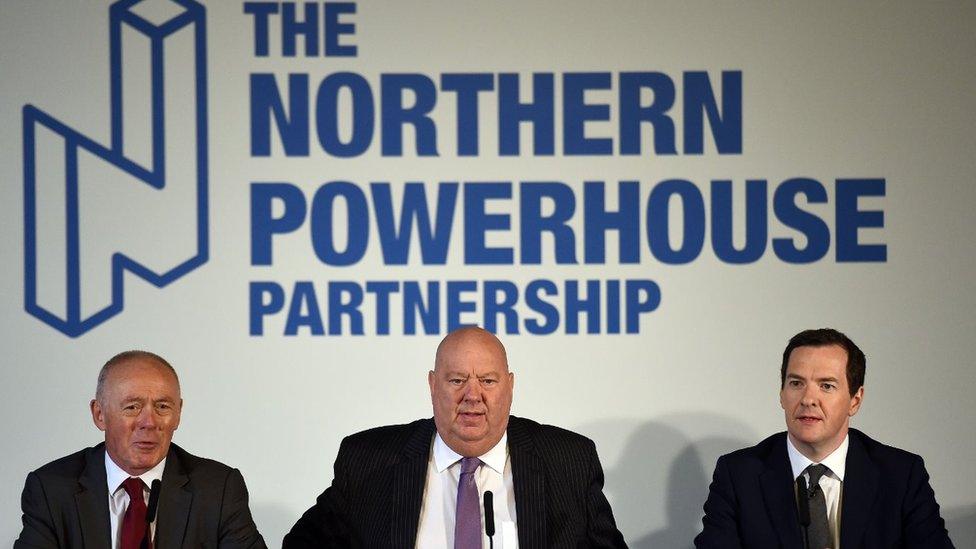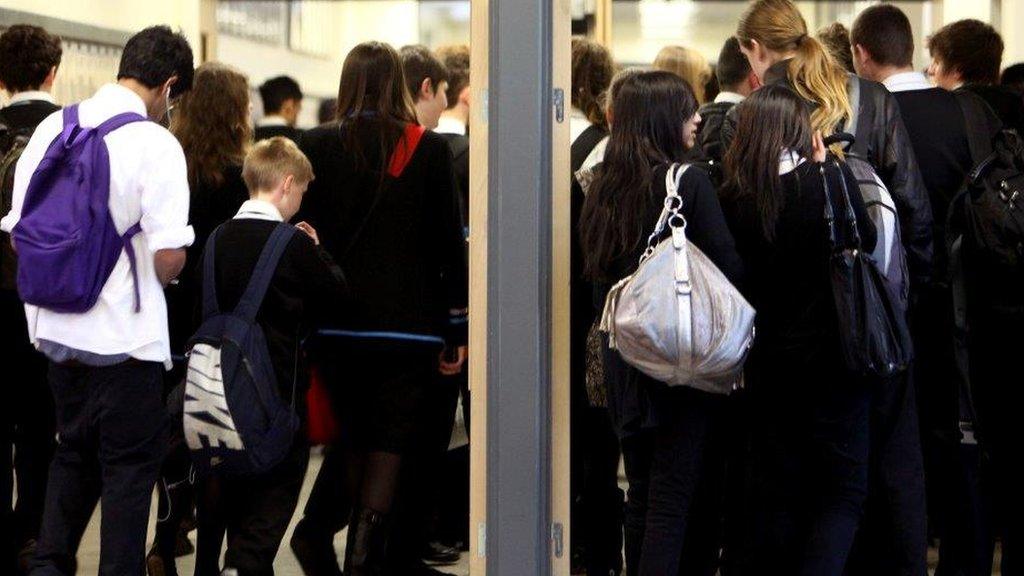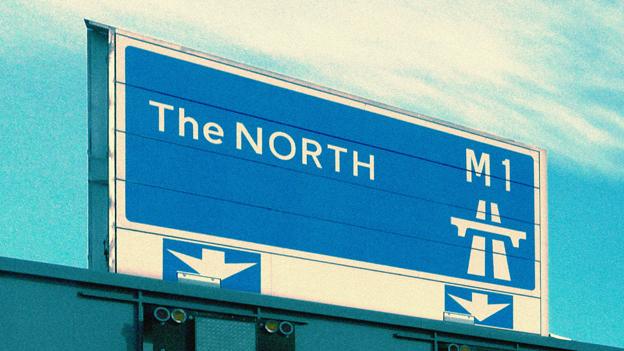Northern Powerhouse: Report calls for £3bn for 850,000 jobs
- Published
- comments

The Northern Powerhouse Partnership is made up of northern businesses and organisations
The government should invest more than £3bn to create 850,000 jobs in the Northern Powerhouse, a new report has claimed.
In its Powerhouse 2050 report, the Northern Powerhouse Partnership suggests investing in schemes including portable nuclear reactors and a hydrogen gas network.
The partnership, made up of businesses and organisations, launched in 2016.
Theresa May said she was "absolutely committed" to the Northern Powerhouse.
The partnership's proposals include the government investing:
£1bn on portable nuclear reactors
£2bn to replace the entire natural gas supply in Leeds with hydrogen produced in the Tees Valley
£20m for three years to 1,000 companies in the North West for "industrial digitisation"
£30m for the development of a North East-wide 5G network
£100m to the Salford Lung Study and Connected Health Cities programme
£20m in The Campus for Ageing and Vitality (CAV) in Newcastle to redevelop the site for academic, residential, industrial and commercial uses
Professor Juergen Maier, who is a member of the partnership, said the "bold and original initiatives" could have a "transformational effect" on northern England.
He said: "The Northern Powerhouse is a vital element of our economic future to ensure that the UK's industrial transformation is real and benefits the country as a whole."
The prime minister told BBC North West Tonight she was supporting the Northern Powerhouse.
She said: "The government is absolutely committed to the Northern Powerhouse, we see that not just in devolution deals but also in the money we are putting into transport across the north."
Northern Powerhouse Minister Jake Berry said the report provided some "food for thought" and would be considered "alongside other evidence going forward".
He added: "We're investing more to improve northern transport connections than any government in history - £13 billion by 2020 - and our £400 million Northern Powerhouse Investment Fund launched earlier this year, will help small and medium businesses to start-up and grow globally."

Analysis
By Nina Warhurst, political editor BBC North West
It's just over three years since the Northern Powerhouse concept was announced by an excited George Osborne. After a meandering start, it's now gathering pace almost as fast as a high-speed rail link, and this report puts real meat on the bones.
We know what the Northern Powerhouse is; the idea that better linked, northern cities become bigger than the sum of their parts. An economic force to match the south-east. What's been tricky is working out how to make happen. This report claims to do that.
But what's really interesting now is watching who's taking charge. Open this report and the first face you see is George Osborne's. As Chair of the Northern Powerhouse Partnership, his foreword categorically states the government can afford everything they're asking for.
The former chancellor's ownership of the Northern Powerhouse narrative is the reason the prime minister barely uttered the phrase when she came in to office. Post-election it's a different story.
Last month, I heard her cram it into one sentence three times. She can't abandon it without appearing to abandon the north, and this week she told me it is government driving the powerhouse agenda, not George Osborne.
There's one thing northern Conservative MPs, Labour mayors and the region's business communities agreed on; the Northern Powerhouse lives or dies on a high-speed rail service linking its cities (Crossrail for the North, or HS3).
The government has pledged "commitment" to the project, but must make it a reality if it's to convince the north that it really wants their powerhouse to be built.

- Published3 February 2017

- Published14 May 2015
